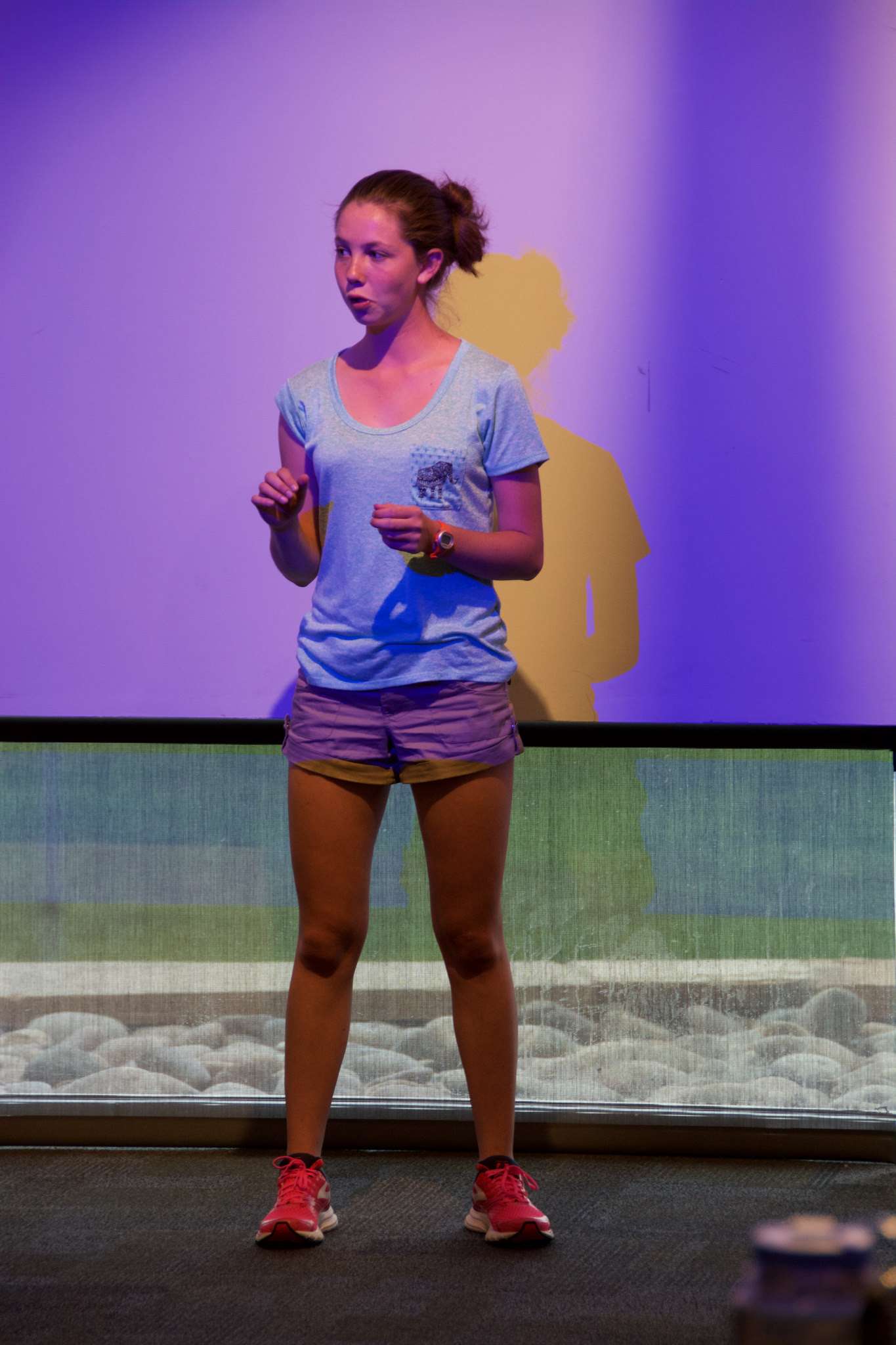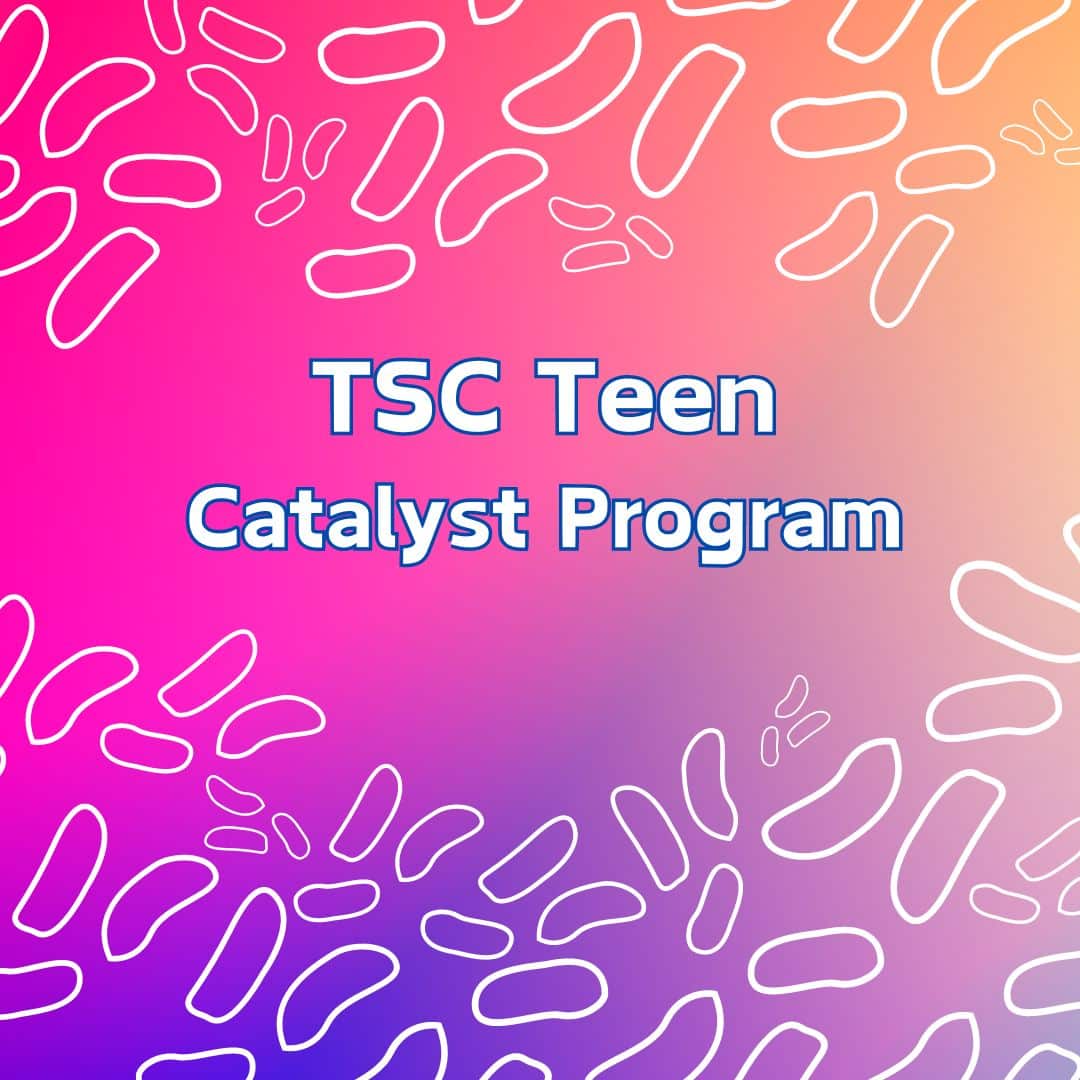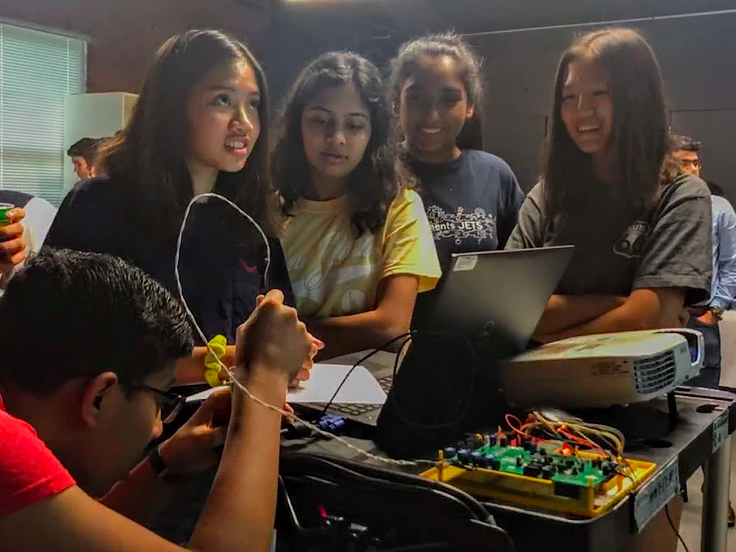Louis Jeantete
Adult Leader, Cafe Scientifique New Mexico-Taos
Within the Network, it is an article of faith that that we want our teen leaders to be self-motivated and proactive in stepping up to their responsibility, to grow at a personal level into true leaders. The purpose of this post is to describe a philosophy and approach in that direction that has proven effective in the Taos site of the Network.
Separate but Equal
I use the concept of teenagers as our equals but not our peers to keep myself in check with the teens. I do my best to recognize that I’m working with uniquely intelligent and talented individuals and treat them accordingly. My goal is to practice staying present for them—listening without interruption and maintaining eye contact. How would I interpret someone in my position interacting with me if I didn’t feel heard or seen? Certainly not respected and less inclined to participate.
At the same time it’s imperative to maintain boundaries and recognize my role in the program as entirely unique to theirs. I don’t engage in inconsequential banter and gossip or try to be cool to fit in. I wouldn’t even know how to begin, and I’d lose respect if I tried.
Gaining trust
If you do it right and hold true to your word you only need to gain trust once. Early on I repeated that the program was theirs to build and backed it up with action, or inaction as was sometimes the case. I reinforced that it was the leaders’ responsibility to organize themselves and that I would do everything I could to get them the resources to build the program unique to their preferences.
To do so, I stepped back from the organizational process very early on, feeling confident to do so as I recognized we had one individual who already had the leadership skills and respect of his peers to step into a prominent organizational role. I’m experienced at bringing individuals together and holding a vision for a project, but I’m not particularly adept at leading meetings. I believe I communicated and demonstrated this, not always intentionally. I lucked out that this individual pitched the council format for organization of the teen leadership to his peers, and because I have experience sitting on councils I had confidence and familiarity with the process.
I think that one key to gaining their trust came from involving them in a holiday fundraiser. I wanted to reinforce that I was in it for them, so I hit the streets hard for donations from local businesses and had the entrance fees for students donated so they could attend the community charity event/holiday party at an upscale resort hotel. They had an opportunity to get dressed up, have hors d’oeuvres, and hob-nob with all the adults. Their tree (see the “It Takes a Village” blog post), was the highest valued at the party. The kids got a lot of attention, with many people asking them about their program. At the next meeting we signed over fifty thank-you cards in an assembly line, giving them an idea of the support they had received from the community and the effort I’d put in for them. They received their “cash bank” from this, and since then it’s been easier sailing for me. They know I’m on their side and that seems to be all it took to gain their confidence.
Money matters
Having a cash bank seems to make the process more real for students. I can ask them to break down the costs of meal purchases and consider a budget, but unless they see the cash slipping away it’s a nebulous process with very little at stake. I observed that when they were carving a food budget out of this they were far more invested in the process.
Expectations and follow-through
As we know, integrity doesn’t necessarily mean getting it right or following through with what you say you’ll do 100% of the time. Being accountable and accepting responsibility for mistakes builds integrity, and this is the lesson that I’d like them to walk away with more than anything.
The council structure—adopted by the teens themselves—shifts the expectation that students are accountable to me and spreads it more evenly among the group. The President becomes the individual to which the other youth leaders are ultimately accountable. If I notice something slipping through the cracks I notify the President or Secretary, whose turn it is to follow up with those individuals. For example, if an individual misses a meeting or café without prior notification I remind the President to speak to the individual. He/she will most often do this while meetings are adjourned with the entire group present, not as a punishment, but again to signify that individuals are accountable to the entire group. It raises the bar and reinforces the notion that Café Scientifique is their program.
Acknowledgement
I make it a point to acknowledge each leader often and whenever appropriate. I thank them for their participation after each meeting and café. When leaders go above and beyond or display a positive character trait that has benefited the group or process, I again thank them and communicate exactly what they’ve done or their way of being that is valued. I’ll either do this in front of the group or individually, sometimes through email, depending on the situation.
“It Takes a Village”
I’m partial to the notion that it takes a village to raise a child, meaning that it’s the responsibility of the community members to recognize and nurture the innate talents and strengths of the youth. When I see that one of the leaders has a natural inclination, I encourage him or her to take on responsibilities that exercise those strengths in the hopes that it will give them additional practice and further development. I’ll often throw these responsibilities at them and, of course, remind them that they are not obligated to take those responsibilities on. In fact, it is their obligation to decline if they are being asked to take on more than they are either willing or able to complete for the sake of their integrity.
Advocate
As this not a school-affiliated program, I advocate for the teen leaders within the community. To my knowledge, there are over 120 non-profit groups in our small area, so it’s important to communicate to these groups how and why this program uniquely benefits area teens. A few examples: This past season I spoke at the Lions Club and also involved our President and Vice President in a program presentation at the Rotary Club. I attend Taos Entrepreneurial Network (TEN) meetings monthly where I speak to the content of upcoming cafes with the hopes of conveying to parents and prominent business leaders the value of the program. Through this work we’ve gained attention and potential funding from several sources, including the local electrical co-op, Green Chamber of Commerce, and one very wealthy and philanthropic family. Our efforts have gotten us mentions in the Taos News, invitations for interviews on local radio stations, and articles in a popular online Taos “who’s who” and local events publication
And in general…
I treat my teen leaders as adults. I allow them the freedom to make their considerations, choose their options, and then decide. If their decision is one that I disagree with I speak up and turn it back to them. If I sense they’re ambivalent on an issue I’ll ask their permission to make the final say. If things don’t turn out well as a result of a decision they have made, we discuss the matter and then I encourage them to go back and try again.





